In May 2016, as the presidential election entered its final six months, the University of Chicago Democracy Initiative (UCDI) distributed a survey to better understand how our college community engages with politics.
While some of the questions directly referenced the election, many asked generally about survey takers' relationships with politics. The original results of the survey were published on the UCDI's website in February of this year, but The Maroon has since conducted additional analysis on some of the survey's more “timeless” questions, providing additional information about how the UChicago community engages with politics.
Level of Engagement
When the survey was originally distributed, participants were asked how engaged they believed themselves to be with politics. Over 60 percent of respondents said they believed themselves to be very actively or mostly engaged, while just over 10 percent said they were engaged very little or not engaged at all.
How active survey respondents believed themselves to be seemed to line up well with the type of elections that they participated in. For example, those who participate in local elections felt 13.8 percent more engaged in politics than those who said they choose not to vote.
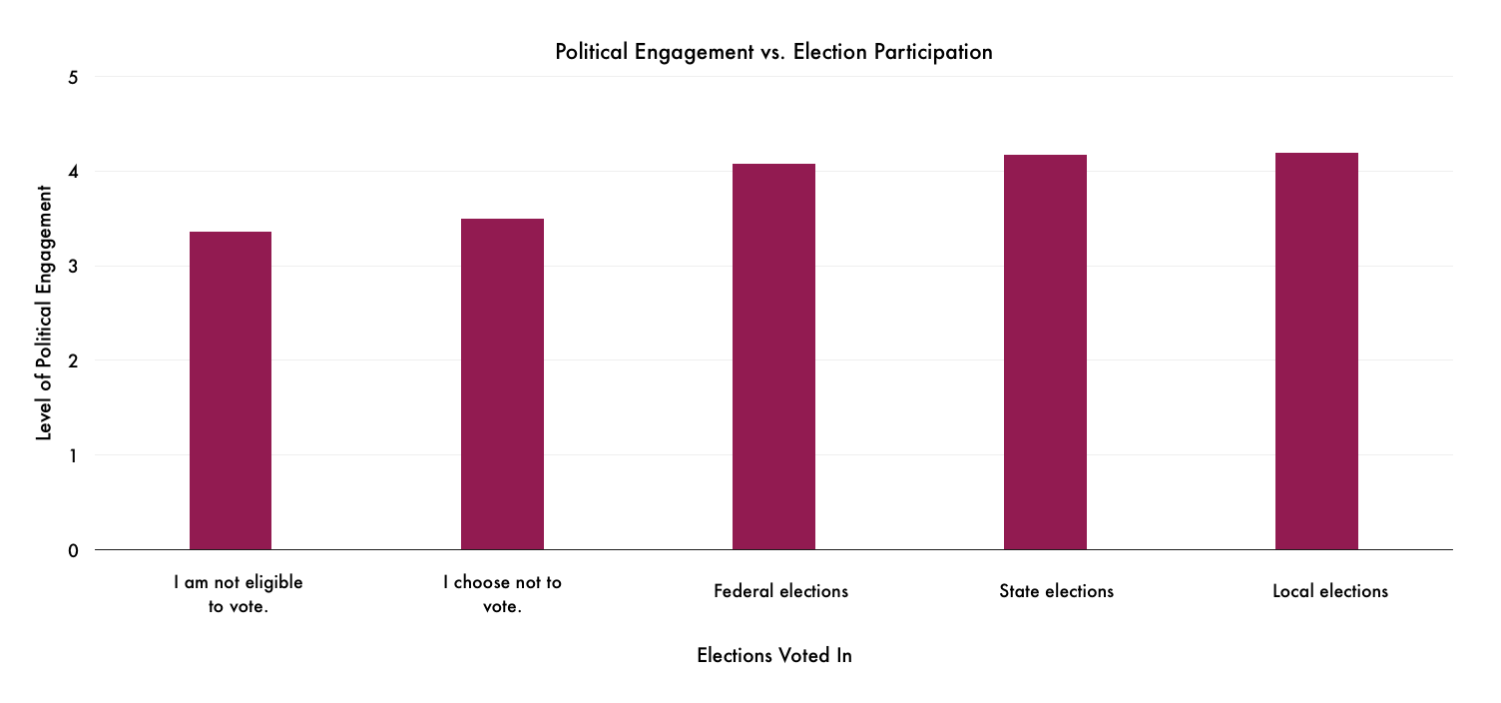
The new analysis also examined the relationship between engagement in politics and news consumption. Those who said e-newsletters were their primary source of news felt they were the least politically engaged while those who chose magazines as their primary source of news felt they were they most engaged. The difference between the two was 4.8 percent.
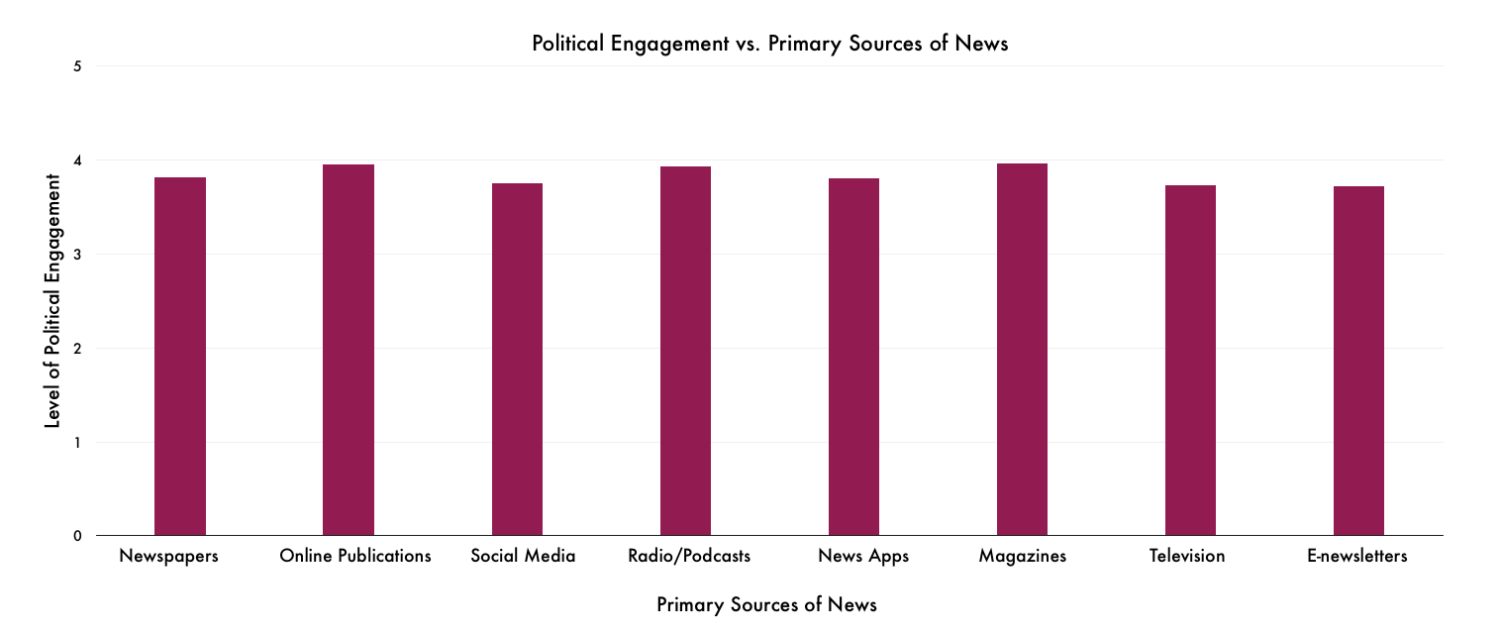
Disagreements in Political Discussions
Participants were also asked how often they encounter disagreements when talking about politics, and how often they discuss politics with friends or family.
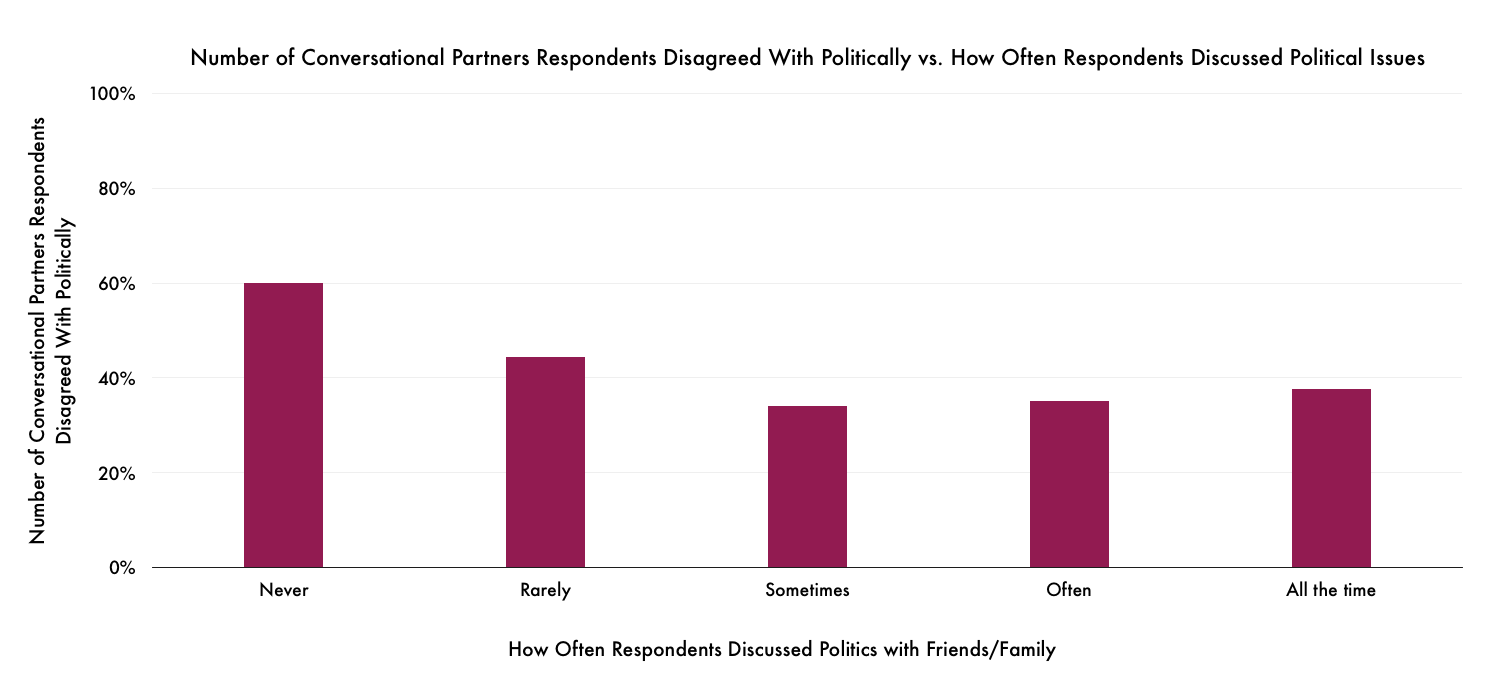
The analysis also explores whether encountering disagreement causes participants to vary their news sources.
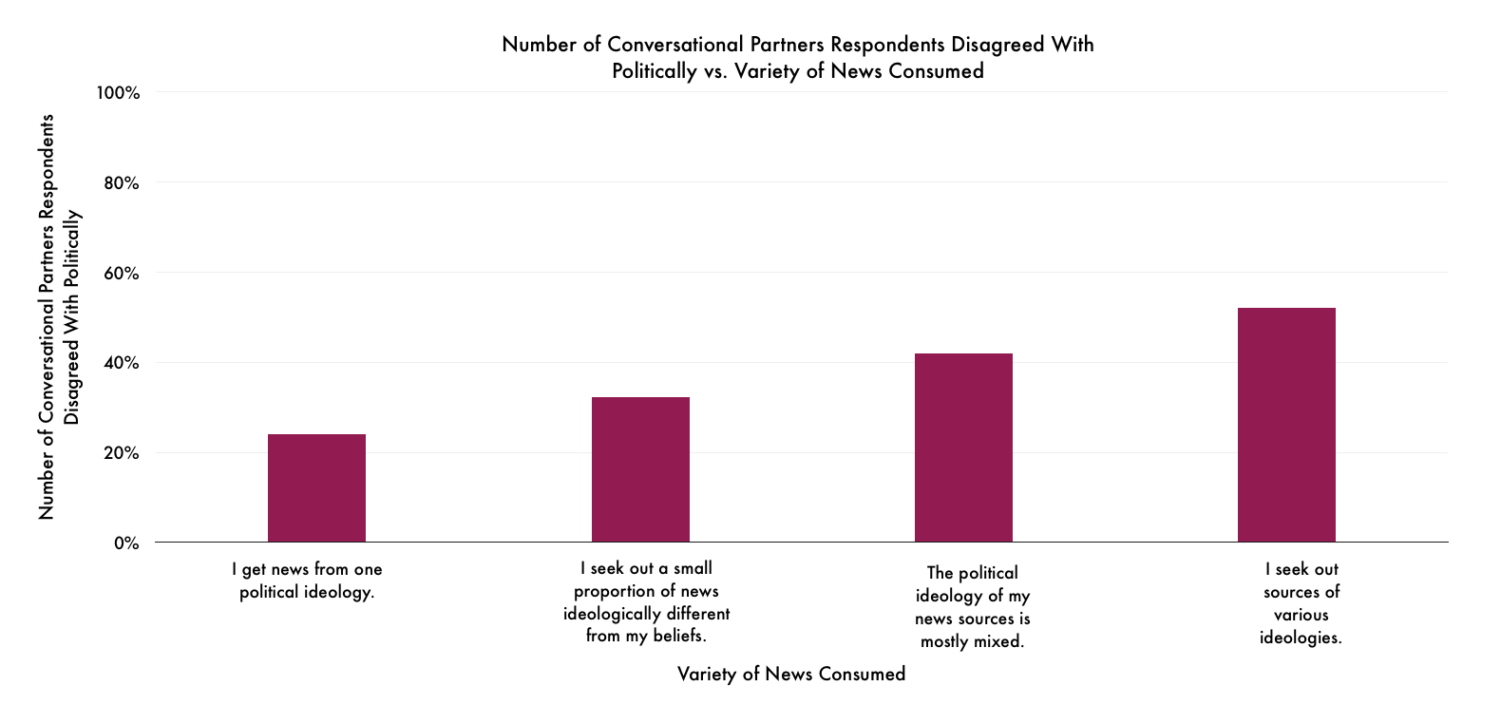
Ability to Participate
Lastly, the survey examined whether people believe they are qualified to participate in politics based on their understanding of it.
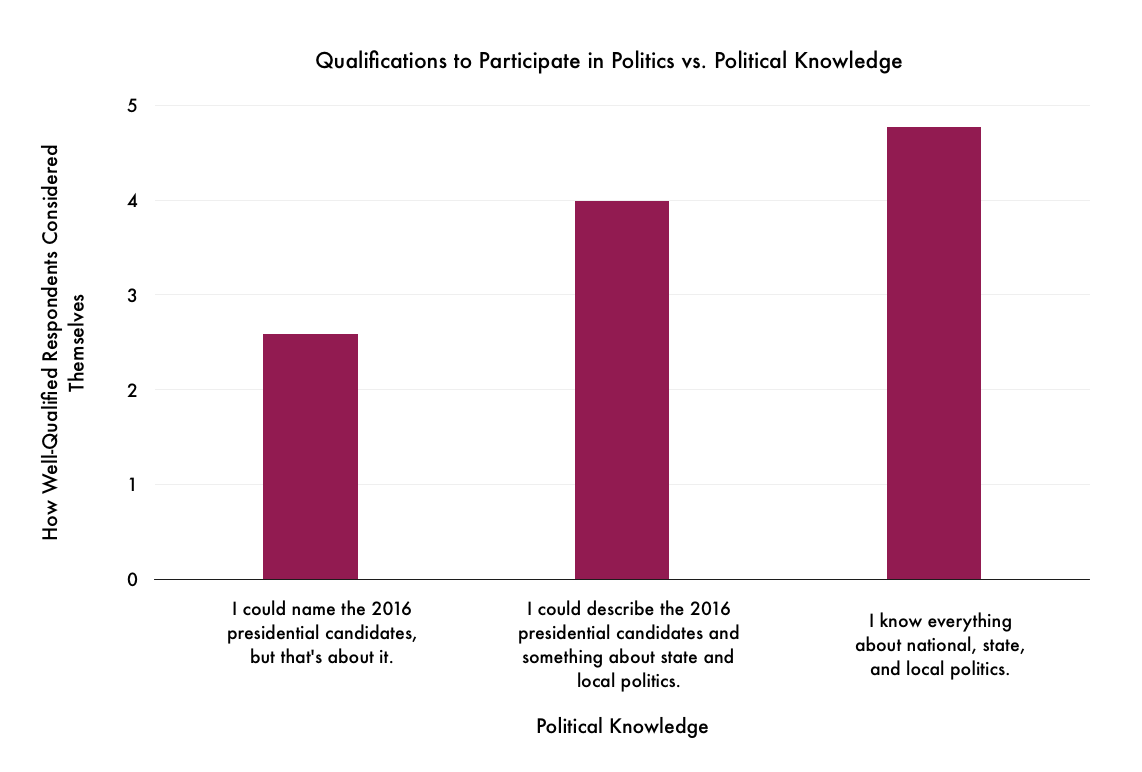
Ultimately, and as one might expect, those who felt they were knowledgeable about “everything” in local, state and federal politics felt that they were the most well-qualified to participate politically.
What Now
Going forward, UCDI plans to conduct more surveys addressing topics of political engagement and reaching out to a wider variety of participants (this survey reached a relatively small sample of only 133 individuals).







